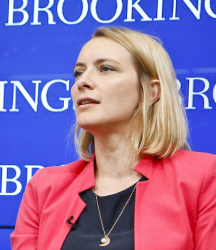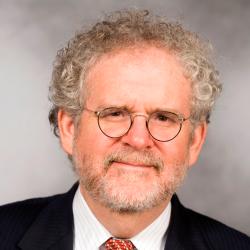

10:00 am EDT - 12:30 pm EDT
Past Event
10:00 am - 12:30 pm EDT
1775 Massachusetts Avenue N.W.
Washington, DC
20036

Over the past three decades, Europe and the United States have made extraordinary progress toward the goal of a Europe “whole and free.” But Europe’s future is, once again, troubled and uncertain. European integration and reform are deeply contested, with Brexit still unresolved. As last month’s European Parliament elections demonstrate, nationalist and populist parties are here to stay, while the centrist majority has fragmented. Meanwhile, the Trump administration has actively sought to disrupt the European project. All of this occurs against the backdrop of an international system that is increasingly competitive and multipolar.
On June 13, the Brookings Institution held two panels to discuss these topics. The first looked at competing visions for Europe’s future. The second looked ahead to 2021 and asked if we can expect the trans-Atlantic relationship to be characterized by disagreements over defense spending, the Middle East, energy, and trade or if deeper cooperation on the international order is possible. Participants included Brookings scholars Célia Belin, Victoria Nuland, Alina Polyakova, Amanda Sloat, Constanze Stelzenmüller, and Thomas Wright, as well as Benjamin Haddad of the Atlantic Council, Walter Russell Mead of the Hudson Institute, Yascha Mounk of the SNF Agora Institute, and Edward Luce of the Financial Times.
This event was part of the Brookings – Robert Bosch Foundation Transatlantic Initiative, which aims to build up and expand resilient networks and trans-Atlantic activities to analyze and work on issues concerning trans-Atlantic relations and social cohesion in Europe and the United States.

Panelist


Moderator

Panelist




Steven Pifer
February 19, 2026

Carlo Bastasin
February 4, 2026

Melanie W. Sisson, Daniel S. Hamilton, Douglas A. Rediker, Aslı Aydıntaşbaş, Vanda Felbab-Brown, Ryan Hass, Jeffrey Feltman, Patricia M. Kim, Stephanie T. Williams, Steven Pifer, Pavel K. Baev, Anand Menon, Andrew Yeo +8 more
February 2, 2026